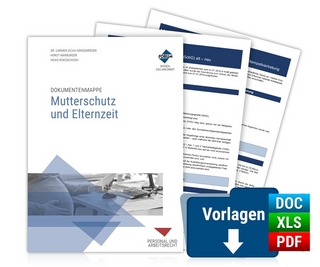
Writing Meaningful Teacher Evaluations-Right Now!!
Corwin Press Inc
978-1-4129-6011-3 (ISBN)
"The authors go beyond the general concept of evaluating to emphasize that supervision must promote lifelong learning skills for our teachers. This book and time-saving CD-ROM truly define the aim of instructional supervision to promote teacher growth and development."
—Chester Kaminski, Elementary School Principal
Public School Number 11, Jersey City, NJ
"Evaluating teachers is one of the most difficult duties in any school district. This book helps me identify the professional standards and expectations needed to effectively improve teachers′ accountability and productivity."
—Ellen Ruane, Associate Superintendent
Jersey City Public Schools, NJ
Turn teacher evaluation into a positive process focused on improving teacher and student learning!
In an era of increasing demands for quality performance-based evaluations, this book offers administrators flexible tools for writing fact-filled, meaningful teacher evaluations as part of an ongoing instructional supervision process.
This essential resource empowers administrators to verbalize their goals and vision for their school and communicate expectations, praise, and concerns about performance in a wide range of areas. With a diverse bank of proficiency statements to clearly and comprehensively describe a teacher′s performance, this tool helps administrators efficiently and painlessly monitor, assess, and document instructional performance. Featuring a time-saving CD-ROM with easily customizable and printable forms, the third edition of this best-selling guide includes:
Updated and new proficiency statements emphasizing teacher reflection, collaboration, and professional development
An evaluation organizer to streamline the process
"Pats on the Back" that acknowledge teachers′ good work
Updated sample evaluations
Writing Meaningful Teacher Evaluations—Right Now!! enhances administrators′ capacity for developing individualized evaluations that provide an accurate, meaningful record for both administrators and staff.
Cornelius L. Barker is a much sought-after lecturer for school and community groups on the subject of current cognitive and behavioral trends exhibited by today’s youth. His career in education has spanned more than 25 years in the capacity of classroom teacher and administrator on both the elementary and secondary levels. Claudette J. Searchwell is a retired elementary school principal whose career spanned has 34 years in the public schools. Her service in the field of education includes posts as classroom teacher, assistant principal and principal, assistant director of a federal basic skills program, and coordinator of citywide afterschool and summer programs. Her post-retirement position was that of adjunct professor at Kean University in Union, New Jersey, where she served as supervisor of pre-certification students engaged in their senior internship. Claudette is currently an education contributor to a charter school.
Preface by Claudette J. Searchwell
About the Authors
Introduction
I. Writing the Evaluation: Performance Statements, Suggested "Pats on the Back," and Vocabulary Aids
1. Professional Acumen
Performance Statements
A. Personal and Professional Attributes
B. Professional Ability
C. Professional Development
D. Reflections on Performance
E. Adherence to Mandates
F. The Professional Learning Community/Collaboration
Vocabulary Aids
Suggested “Pats on the Back”
2. The Positive Learning Environment
Performance Statements
A. Rapport With Students
B. Nurturing Student Self-Esteem
C. Providing Emotional Support/Building Emotional Strength
D. Classroom Climate/Culture
E. Student Management/Discipline
F. Promoting Student Safety and Well-Being (in class/school)
G. Promoting Student Safety and Well-Being (off-site)
H. Collaborating With Parents to Support Student Achievement and Well-Being
Vocabulary Aids
Suggested “Pats on the Back”
3. Preparation and Organization
Performance Statements
A. Lesson Planning
B. Record Keeping/Reports
C. Visuals, Displays, Collections
D. Physical Plant, Equipment and Supplies
Vocabulary Aids
Suggested “Pats on the Back”
4. Delivery of Instruction
Performance Statements
A. Motivating Students to Learn
B. Promoting Student Academic Growth
C. Clarity of Presentation
D. Instructional Practices
E. Technology As a Teaching Tool
F. Differentiated Instruction
G. Multiple Intelligences
H. Cooperative Learning/Student Collaboration
I. Critical/Higher-Order Thinking
J. Problem-Based Learning (PBL)
K. Special Education
L. Sex/Family Life Education
M. Environmental Education
Vocabulary Aids
Suggested “Pats on the Back”
5. Measuring Student Growth
Performance Statements
A. Empowering Students to Succeed
B. Conducting Ongoing Assessments
C. Strategies Employed to Evaluate Students
D. Utilizing Evaluation Data
Vocabulary Aids
Suggested “Pats on the Back”
II. Other Helpful Resources for Writing Performance Evaluations
6. Planbook Notations
7. The Evaluation Organizer
8. Sample Written Evaluations, With Commentary
9. Record of Evaluations Form
10. A Checklist of Basic Documentation and/or Conditions
11. Conference Forms
12. Informal Observation Form
13. Clinical Observation Data Form
14. Using Technology in Teaching/Learning
15. Common Areas of Concern, With Suggested Remedies
16. Chronology of Evaluation Activities
17. Cross-Reference of Key Terms
| Erscheint lt. Verlag | 10.8.2010 |
|---|---|
| Verlagsort | Thousand Oaks |
| Sprache | englisch |
| Maße | 215 x 279 mm |
| Gewicht | 420 g |
| Themenwelt | Sozialwissenschaften ► Pädagogik |
| Wirtschaft ► Betriebswirtschaft / Management ► Personalwesen | |
| ISBN-10 | 1-4129-6011-8 / 1412960118 |
| ISBN-13 | 978-1-4129-6011-3 / 9781412960113 |
| Zustand | Neuware |
| Haben Sie eine Frage zum Produkt? |
aus dem Bereich


